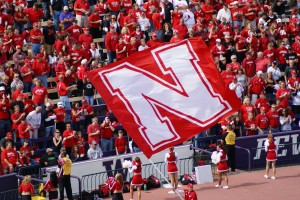 Name someone you would consider a servant leader. I’m waiting! In today’s fast paced society that is all about the bottom line. Servant leadership is a rarely seen, let alone understood. There is no time to invest in people, we are too busy investing in new technological advances or aggressive marketing campaigns.
Name someone you would consider a servant leader. I’m waiting! In today’s fast paced society that is all about the bottom line. Servant leadership is a rarely seen, let alone understood. There is no time to invest in people, we are too busy investing in new technological advances or aggressive marketing campaigns.
It appears we have forgotten that our people are still our greatest asset and at the same time, our greatest liability. Why are we not investing the time and resources to protect and develop our people?
Tom Osborne, Hall of Fame coach and currently athletic director at the University of Nebraska recently announced that he would retire at the end of the year. Although most will recognize Osborne for his accomplishments on the field, he would most likely tell you that his leadership accomplishments off the field are what truly define his legacy.
In 1991, Tom and his wife Nancy founded the TeamMates program to encourage and help school-aged youth to graduate from high school and pursue post-secondary education. A true pioneer in servant leadership, Osborne has always put the players before the game. In his book “Secrets To Becoming A Leader“, Osborne gives us eight characteristics of a servant leader:
1. The leader is willing to sacrifice self-interest for the good of the group.
Servant leaders will always put others before their own interests. The higher they go, the more they will give up.
2. The leader is willing to listen empathetically to understand followers.
Servant leaders will listen with compassion. They will make their decisions based on the specific needs of the person.
3. The leader is a role model – exemplifies qualities that followers admire.
Servant leaders always lead by example. They strive to be a picture of what they want others to become.
4. The leader is able to communicate and inspire others towards a shared vision.
Servant leaders not only communicate, they connect. They connect on a level that will facilitate development and engagement.
5. The leader’s actions are rooted in principles and values rather than in external rewards.
Servant leaders consistently exhibit high moral and ethical standards. Trust and respect are two major factors in their success.
6. The leader encourages growth and increased responsibility in followers.
Servant leaders recognize that they need to grow and empower others and develop leaders that will do the same in the future.
7. The leader is dedicated to having his or her organization serve others and be a constructive force in society.
Servant leaders give back to their community on a consistent basis. They recognize and appreciate what they have been blessed with and are willing to share their success with others.
8. The leader has exceptional awareness and vision – he or she can anticipate future trends and events.
Servant leaders look at the big picture and develop those around them so that their team is able to continue without them and continue the vision that was put in place.
It is clearly a challenging list that Coach Osborne had provided. As a leader, you have to ask yourself “Am I managing a business or am I developing a team?” Tom Osborne will leave behind one of the greatest coaching careers in college football history. More importantly, he leaves behind a legacy of countless athletes whose lives he influenced in a positive way. I once heard it said that:
“People won’t remember what you said and they won’t remember what you did. What they will remember is how you made them feel.”
What significant act will you do today that will influence someone’s life that will be remembered tomorrow?
***********************************************************************
Don’t miss a single post from Building What Matters by subscribing at the top left of this page.
Help support us by clicking here and Liking our facebook page
Barry Smith www.buildingwhatmatters.com 10/1/12 photo by author


Great Post Barry. The truth is relational leadership is so far removed from the self interested, aggressive, defensive leadership we see so broadly modeled. I love watching programs like the apprentice and the young apprentice and always find myself feeling a tad sad as the competitors declare boldly how much of a piranha they are and how they “eat their adversaries… (often their own team players)…for breakfast!”
Great points Dion. Unfortunately, the way things are depicted on television and in the movies are far too real far too often.
Wow, that comment Barry reminds me of one of my favorite considerations. Movies actually create consciousness and form a model for how “one should behave’. So, when we look and see what is being fed into the minds of the observers, it is a very sobering experience.
On the other hand, it means that movies, videos and social media can be used to create consciousness that includes servant leadership as well as peace on Earth.
Thanks Serena. The media can be our best friend or worst enemy. I guess what it comes down to is what we choose to invest our time in. Great comments.